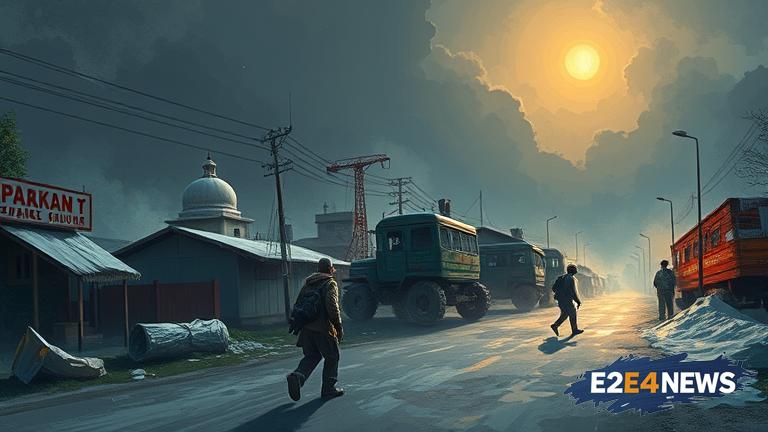On August 5, 2019, the Indian government made a historic decision that would change the course of Kashmir’s history. The government, led by Prime Minister Narendra Modi, revoked Article 370 of the Indian Constitution, which granted special status to the state of Jammu and Kashmir. The move was met with widespread criticism and protests from the people of Kashmir, who felt that their rights and autonomy were being taken away. The Indian government had been considering this move for a long time, and it was finally implemented through a presidential order. The revocation of Article 370 meant that the state of Jammu and Kashmir would no longer have its own constitution, flag, or autonomy. The decision was taken without consulting the people of Kashmir, which added to the sense of betrayal and anger. The Indian government claimed that the move was necessary to integrate Kashmir fully into India and to promote economic development in the region. However, many experts and critics argued that the move was a blatant attempt to undermine the rights of the Kashmiri people and to impose Indian dominance over the region. The revocation of Article 370 was followed by a complete lockdown of the Kashmir Valley, with internet and phone services being suspended and a curfew being imposed. The lockdown was enforced by the Indian military, which was deployed in large numbers across the valley. The people of Kashmir were unable to leave their homes, and many were arrested and detained by the security forces. The international community was quick to condemn the Indian government’s actions, with many countries expressing concern over the human rights situation in Kashmir. The United Nations also issued a statement, calling for restraint and dialogue to resolve the issue. Despite the criticism, the Indian government remained firm in its decision, and the lockdown continued for several months. The people of Kashmir suffered greatly during this period, with many facing difficulties in accessing basic necessities like food and medicine. The economy of the region also suffered, with many businesses being forced to shut down. The revocation of Article 370 also had significant implications for the political landscape of Kashmir. Many Kashmiri politicians were arrested and detained, and the region was placed under the direct rule of the Indian government. The move was seen as a major setback for the Kashmiri struggle for self-determination, and it sparked widespread protests and demonstrations across the region. The Indian government’s actions were also criticized by human rights organizations, which accused the government of violating the rights of the Kashmiri people. The situation in Kashmir remains tense to this day, with many people still living under the shadow of fear and uncertainty. The revocation of Article 370 was a major turning point in the history of Kashmir, and it will have far-reaching consequences for the region and its people. The international community must continue to pressure the Indian government to respect the rights of the Kashmiri people and to work towards a peaceful resolution of the issue. The people of Kashmir deserve to live in peace and dignity, and it is the responsibility of the international community to ensure that their rights are protected. The situation in Kashmir is a complex and sensitive issue, and it requires a nuanced and thoughtful approach. The Indian government must be willing to listen to the concerns of the Kashmiri people and to work towards a solution that respects their rights and autonomy. The revocation of Article 370 was a major mistake, and it is imperative that the Indian government takes steps to rectify the situation and to promote peace and stability in the region.
